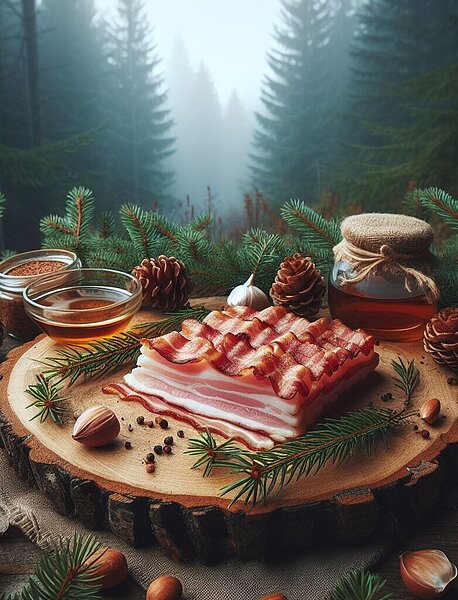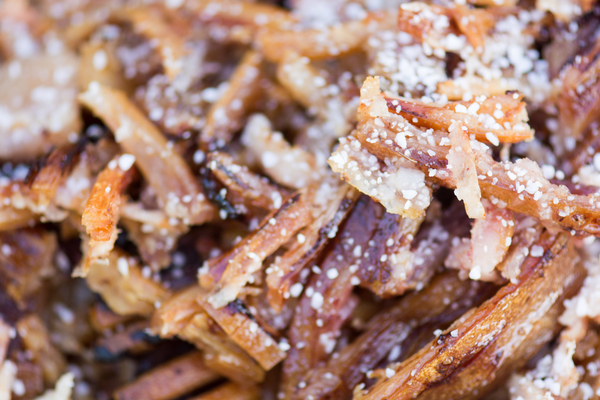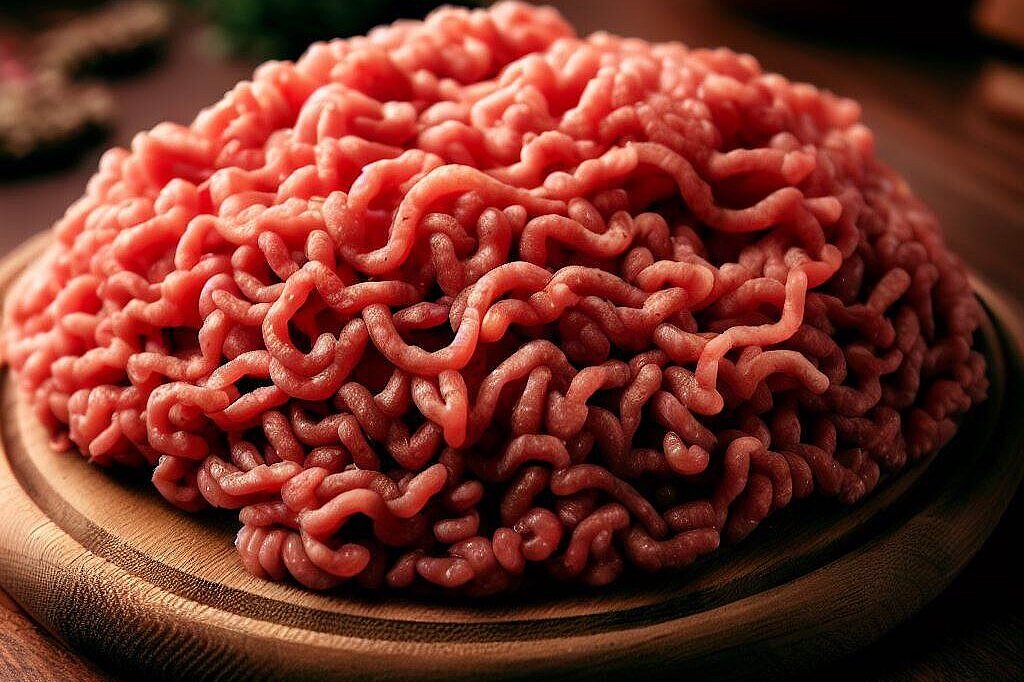Bacon

What is bacon?
Bacon is a meat product that is usually made from pork. The meat is cured, smoked or cooked to make it more durable and aromatic. Bacon comes in different shapes and varieties, for example as belly bacon, back bacon or ham bacon. Bacon is very high in fat and salt and often contains other spices.
Is bacon poisonous for dogs?
No, bacon is not poisonous to dogs. However, this does not mean that it is healthy for them. On the contrary: bacon is very unhealthy for dogs and should only be fed in very small quantities and rarely. There are several reasons for this:
- Bacon is very fatty. Too much fat can lead to obesity, diabetes, cardiovascular problems or inflammation of the pancreas in dogs. Fat can also disrupt digestion and lead to diarrhea or vomiting.
- Bacon is very salty. Too much salt can lead to kidney problems, high blood pressure or increased thirst in dogs. Salt can also irritate the mucous membranes and lead to coughing or sneezing.
- Bacon is made from pork.Pork should not be fed raw to dogs as it can contain the Aujeszky's virus, which can be fatal to dogs. Even if bacon is usually cured or smoked, it can still contain traces of the virus. Pork can also trigger allergies or intolerances.
Are there any benefits of bacon for dogs?
Bacon has no advantages as a food for dogs. It does not provide any important nutrients that dogs cannot get from other sources. The only benefit of bacon for dogs is the taste: many dogs love the smell and taste of bacon and are happy to have a small piece as a reward or treat.
How can you feed bacon to dogs?
If you want to give your dog a piece of bacon from time to time, there are a few things you should bear in mind:
- Choose a lean bacon. Avoid fatty belly bacon or smoked bacon, which contains a lot of salt. Lean varieties such as bacon or turkey bacon are better.
- Cut the bacon into small pieces. This will prevent your dog from choking or swallowing the bacon whole without chewing it.
- Fry the bacon without fat. This reduces the fat content even further and avoids extra calories.
- Only give your dog a small amount of bacon. One small piece per week or month is enough to make your dog happy. It should not be more than this to avoid endangering your dog's health.
- Do not use raw or expired bacon. Raw bacon can contain bacteria or viruses that can harm your dog. Expired bacon can be spoiled and cause gastrointestinal problems.
What alternatives are there to bacon for dogs?
If you want to do something good for your dog, there are many healthier alternatives to bacon. For example, you can offer your dog the following treats:
- Dried meat.Dried beef, chicken or lamb is a high-protein and low-fat treat for your dog. Make sure that the meat does not contain any additives such as salt or sugar.
- Vegetables. Many dogs also like vegetables such as carrots, cucumbers or zucchinis. These are rich in vitamins, minerals and fiber and have hardly any calories. Make sure that the vegetables are raw or steamed and do not contain any spices or sauces.
- Cheese.Cheese is a popular treat for dogs that also provides calcium and protein. However, cheese is also high in fat and salt, so you should only give it in small amounts and rarely. Choose a mild and low-fat cheese such as cottage cheese or mozzarella.
Bacon is not a suitable food for dogs and should only be fed as an exception and in small quantities. Too much bacon can lead to serious health problems in dogs. There are many healthier alternatives to bacon that taste just as good and are good for your dog.
Properties 3
Are you looking for other ingredients with a specific property?
Just click on them to find more.
If you notice any signs of hypersensitivity or poisoning in your dog, you should see your vet immediately. We are not a substitute for a vet, but we try to be as accurate as possible. Every dog reacts differently and we recommend you get a second opinion or consult your vet if in doubt.
Stay healthy and take good care of your four-legged friend!😊
Similar to Bacon
Meat is the collective term for the muscle tissue of animals that is used as food. Meat can come from different animal species, such as beef, pork, poultry, lamb or game. Depending on the animal...
Rind is the thick, firm layer of skin on pigs, usually attached to some of the underlying fatty tissue. Rind is often smoked, dried or cooked to preserve it and give it more flavor. Rind can be used...
Animal fat comes from the tissue of mammals, poultry and fish. It consists mainly of saturated fatty acids, which are easier for dogs to digest than vegetable fats. Animal fats also contain...
Minced meat is a finely chopped meat mass that usually comes from beef or pork. However, it can also be made from other animal species such as poultry or lamb. Minced meat is often mixed with spices...



